ÐÎÑÑÈÉÑÊÈÉ ÏÐÎÔÅÑÑÈÎÍÀËÜÍÛÉ ÑÎÞÇ ÌÎÐßÊÎÂ
SEAFARERS' UNION OF RUSSIA
A NON-UNIONIZED SEAFARER
IS AN UNPROTECTED SEAFARER
Back
Yekaterina Balabukha: “Staying Away From the Sea Makes Me Feel Bad”
When the Admiral Makarov State University of Maritime and Inland Shipping allowed girls to get education on a budgetary basis in 2008, there was strong disbelief that they can succeed and build a career in the maritime industry. However, Yekaterina Balabukha proved that if you have a goal, you can overcome any difficulties: a girl of only 24, has already had 7 years of experience under her belt and a rank of the 4th Mate of “Sibur Voronezh” gas tanker (SCF Group of Companies). Along with the other girls in the merchant navy she helps to dispel the stereotype that women are not part of the shipping industry.
Even when she was a little girl, Yekaterina Balabukha was always lured by the sea. She had to go a long and difficult way to fulfill her dreams and start a maritime career. On this way, she had overcome a lot of challenges and became one of the first Russian girls to apply for the position of navigating officer on a vessel. Now she works as a 4th Mate of “Sibur Voronezh” gas tanker and firmly believes that girls can succeed in any profession if they really want to.
"I was born in Veliky Novgorod. My parents were seafarers. It turns out that my life started on the ship, but I found that out only when I turned 13 years old. My father left us when I was a little girl and my mom, as far as I remember, always worked at a confectionery shop and never said a word about her sea background. When I was in ninth grade, a friend of mine invited me to join our Young Sailors Club, but at that time I was engaged in rowing so I declined her offer. But after quite some time her persuasions worked, I joined the club and then my mother told me that both she and my father had been directly linked to the sea by their job. "Now I can really see the family resemblance!", she added.
Thanks to the Young Sailors Club (Captain Varukhin Sea Center) children in Veliky Novgorod have the opportunity to participate in regattas and learn the basics of maritime professions from an early age. Usually kids can join the club if they are older than 9, and the program covers the 5 years’ period. Yekaterina studied the basics of navigation for a shorter period of time, 2005 to 2008.
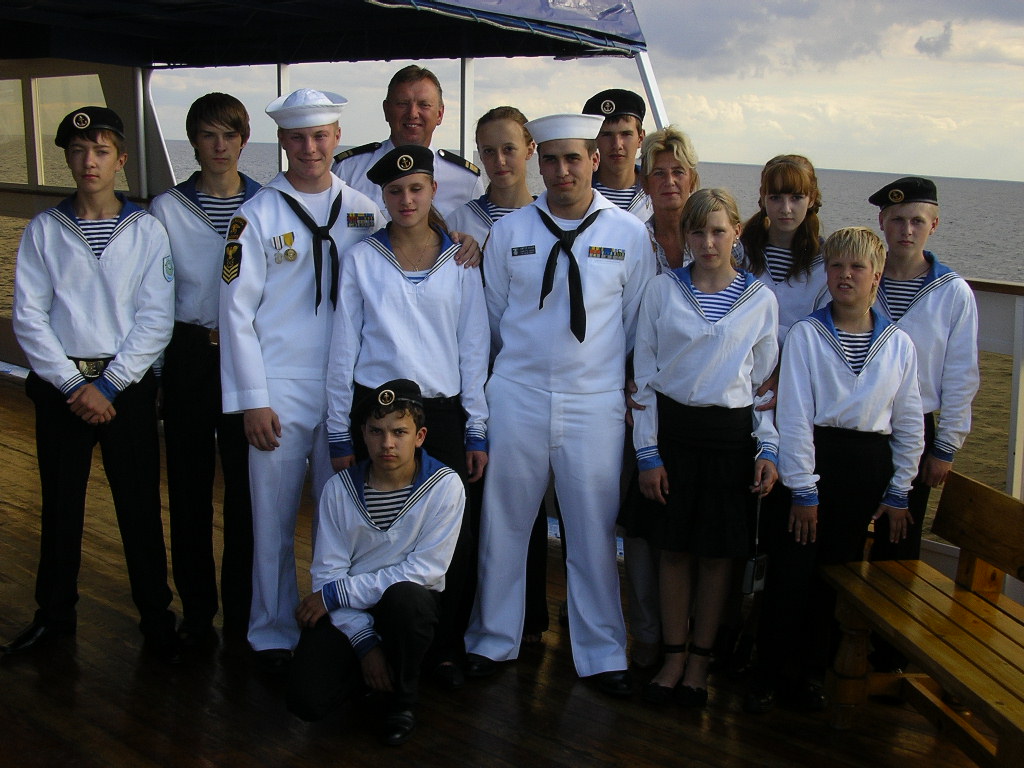
Deputy Director of the Captain Varukhin Sea Center Nadezhda Fedotova says:
– Yekaterina took participation in every single event. At the University, she also headed the Council of the Navigation department. Our Club, as the only representative of the International Association of Marine Cadets in Russia, held international gatherings on our vessel, and Yekaterina always took part in them as the best student. Yekaterina was very good at drawing as she was attending an art school and usually represented Club at various city competitions. Until now one of her pencildrawings depicting our training ship, “Gospodin Veliky Novgorod”, sailing down the river with the Kremlin being the background, hangs on the wall in the Director’s reception.. Captain Nikolai Varukhin shows it to the guests and proudly says that its creator is not just a young seafarer, as the inscription reads, but is already a 4th Mate. When Yekaterina comes to town, she always visits our Club, meets with young sailors, recalls with the Director the adventurous sea trips, tells lots of stories about her work. Such people as Yekaterina Balabukha will be remembered for the entire life.
Decisive Choice
Balabukha showed a lot of interest studying marine craft, sailing on board of two ships that belonged to the club, passenger ship "Gospodin Veliky Novgorod" and training ship "Mikhail Balaban." Lots of boys and girls decided to continue their professional career by enrolling in higher maritime institutions. Yekaterina also prioritized maritime professions, but still at that time she had a few doubts about it.
"It was really hard for me to decide, what kind of career I should choose. As a child, I studied art. Besides, I was drawn to study foreign languages. So I hesitated between the profession of an interpreter and graphic designer. But the love of the sea overpowered all, mainly thanks to the Young sailors club. This club has changed my life. "
Founder of the Club Nicholay Varukhin played a huge role in the formation of Yekaterina as a specialist. Seeing her fervour, he supported Yekaterina on her way. And when she was completing upper secondary education he provided Yekaterina with references to enter the Admiral Makarov State University of Maritime and Inland Shipping.
"After school, I went to the State University of Maritime and Inland Shipping. At first I found myself as a student of the Marine Engineering Department, but a year later I went back to studying Navigation again. The whole process was pretty difficult for me at first mainly because I was not that good at technical subjects. But thanks to the boundless interest and perseverance, I managed to study the skills of the maritime profession. It was some sort of an experiment – for the first time in the history of our university the girls were studying maritime professions on a budgetary basis. There were three more girls in Navigation Department, one of them – Lyana Mitrofanova. I am still staying in touch with her".
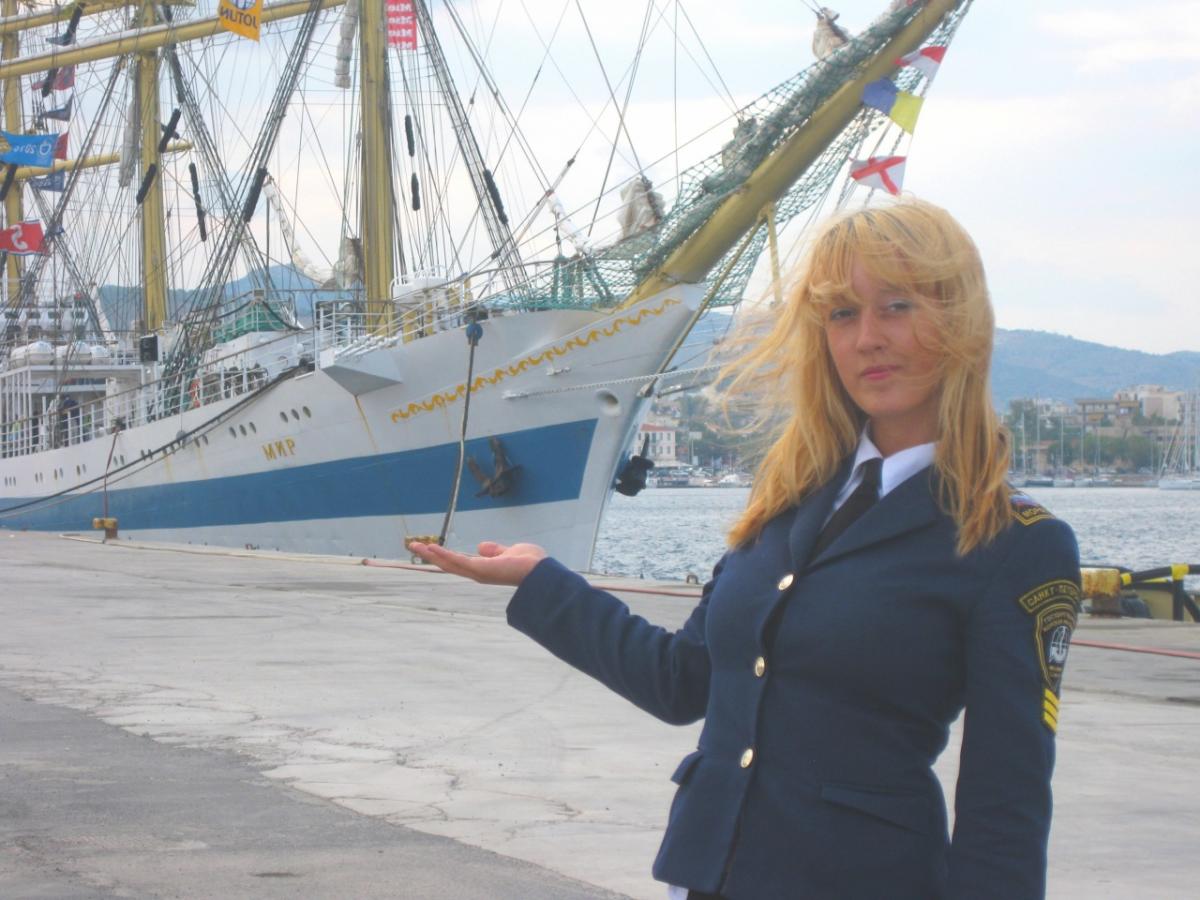
The More You Sweat in Training, the Less You Bleed in War
Taking her first steps in a traditionally male-dominated sector , Yekaterina has got first-hand experience of what prejudice is. However, the difficulties in communication with teachers and classmates appeared only during the first years of studying.
"During the first two years of studying it was usual for us to be asked questions like "What are you doing here?". But when the guys realized that we’re here toget a decent education and are really interested in making career in maritime industry, then their attitude immediately changed for the better. These questions did not hurt me, because I knew what kind of path I chose and was ready for this kind of attitude. But it was a bit difficult to cope with the teachers’ attitude, which was very similar. It was strange for them to see girls among all the other students, many of them could not find the right way to cope with this fact. Some of them were trying toprobe us for weakness to make sure we really want to get this profession and are ready for it, while others treated us like they didn’t even care what we are going to do after graduation. I remember our teacher, Sigida Vladimir Ivanovich, my future thesis advisor , whoon the third year in the university used to ask us, girls, if wereally are planning to sail. At that time it was only me who said “yes”. Because of that answer he treated me much stricter, and now I’m really grateful for that".
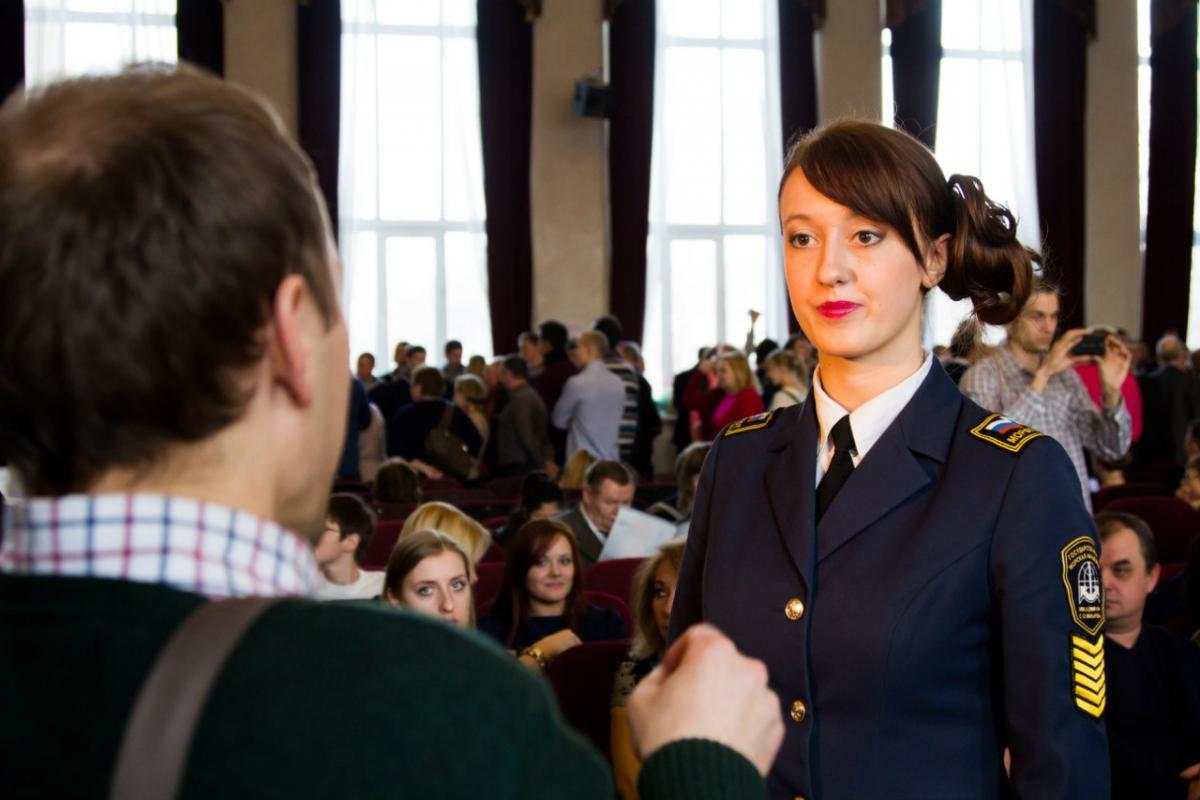
The Burden of Responsibility
It was also difficult to find a place for practice. Companies in Saint-Petersburg were in no hurry to take girls on their vessels girls, especially cadets. They were more likely to offer them the role of a ship waitress or a cook if they considered the possibility of taking the young girls to practice. But Ye Ye Yekaterina rinarina handled these difficulties:
"Sovcomflot, Stena, Bottlenose Dolphin and a Dutch company, Clipper were the first ones to respond. It was Clipper who offered me a place on one of its vessels. I always tried to work as hard as I can, cause with this opportunity came a great responsibility. We were one of the first girls who came to the fleet and depending on how good we were these companies were about to decide whether or not to take other girls on their vessels in the future".
During the practice Ye Yekaterina rina’s been working on two ships, one of them turned out to be bulk carrier and the second was the multipurpose type. That's why the work that she performed, seemed to be similar, yet had obvious differences.
– I remember well my work on bulk carriers because, on one hand, the male part of the crew showed understanding and we had good relations with each other, on the other hand, it was all about hard physical work, – Yekaterina recalls. – Our first trip on a bulk carrier was to Argentina, we had a short voyage. During this time, we had to wash from phosphate and re-paint five holds of the vessel, because Argentina performed very strict checks. Physically, it was hard – the phosphate was hard to wash off, it was leaving white streaks. We had to wash everything several times, but we have passed the checks. The work on multipurpose ship was more diverse. We sailed to the United States, discharged the windmill arms , loaded grain and went with it to Liberia and from there to Europe for another cargo which had to be delivered to New Zealand and Australia.
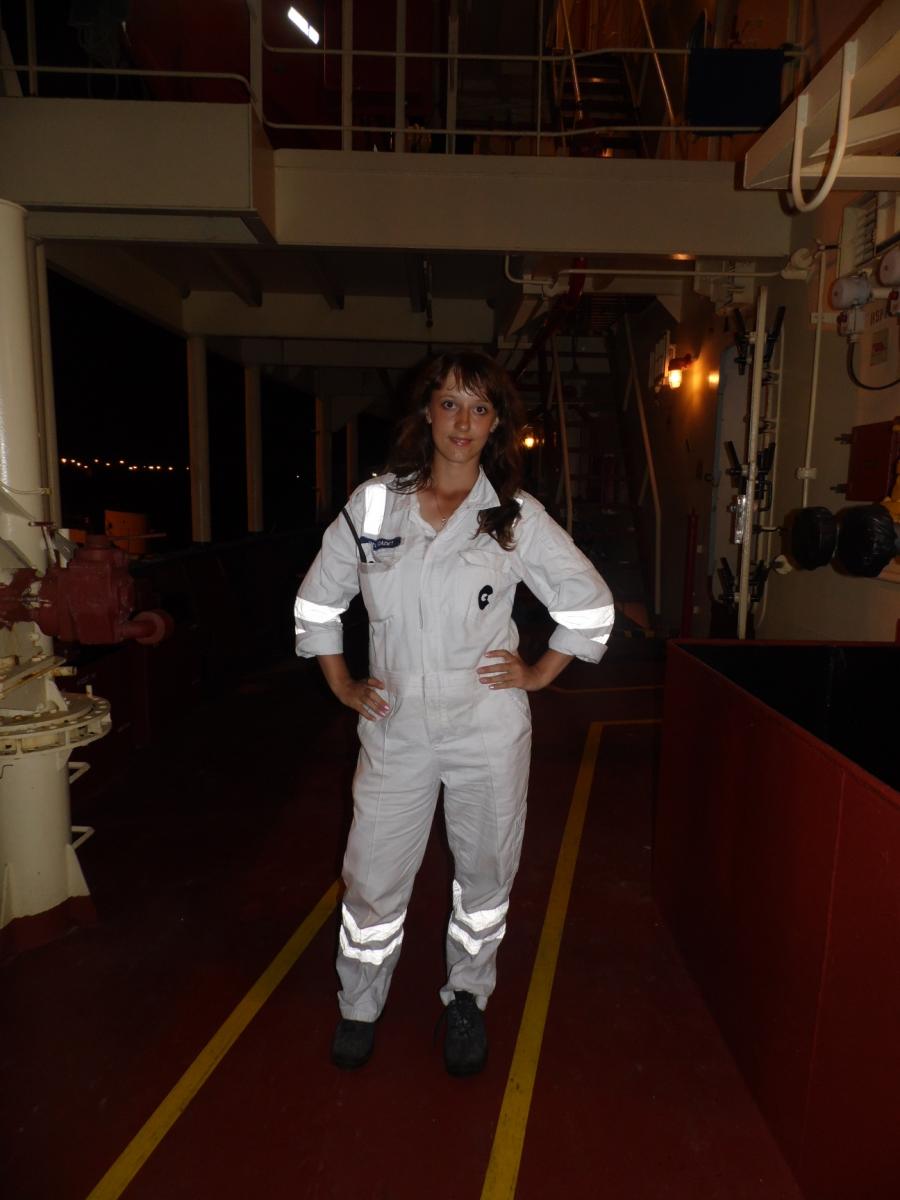
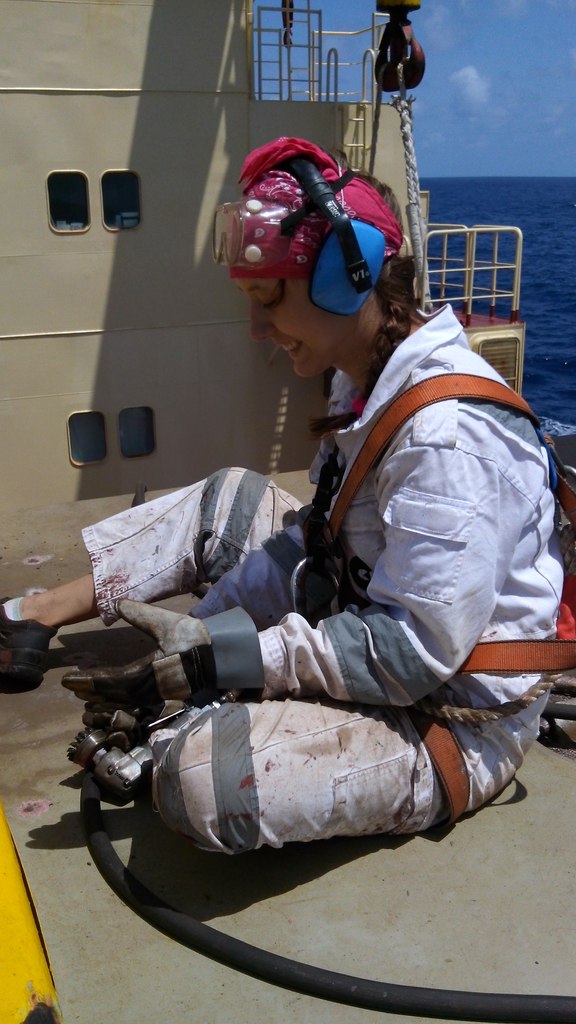
A Woman on Board the Ship
Difficulties in finding the ship for practice turned out to be one of smallest obstacles on Yekaterina ’s way. She had to join the team, improve relations with the crew and perform complex tasks, just like everyone else. But Yekaterina has proven that hard work and dedication will pay off:
– The hardest thing was to fix the cargo on the vessel – from containers to big trucks. You will need a real physical strength to deal with these tasks. In addition, you have to constantly work on the deck. If you need something to wash – this can be easily done, but when, for example, you need to beat off the rust, you can working with a jackhammer for eight hours in a row. And no one’s going to treat you like a fragile girl. On the contrary, if you show your weakness they will remind right away that the sea is a man’s job. But in general they treated me well. The senior officers saw that I was working as hard as the boys: after 8 hours on the deck I went on a bridge doing my best to study navigation. So they had no reasons to preserve prejudice against me. After all that I do believe that you are not allowed to show your weakness. This job teaches you how to be strong. Therefore, after the work is done, I usually need to do all that girly things: make-up, manicure. There’s no place for such things on board, but if you are really into work, you won’t even notice their absence in your life.
Grand Voyage
Having graduated from the Academy and worked out two contracts with Clipper, the first - during her studying, and the second one - after graduation, Yekaterina planned to stay with the company, but things had gone differently: the shipowner sold eight vessels at once which led to layoffs. For those who worked on the vessels as cadets career development was impossible.
- After another contract I decided to find a company in which it would have been possible to become an officer. Because I had worked on bulk carriers before I was looking for the company with the same type of vessels, but got only refusals. I was quite in despair when my fellow officers from the University advised me to contact Sovcomflot, – says Ye Yekaterina rina. — At first I brushed the idea away, cause I had never worked on tankers before and the company's fleet contains mostly this type of ships. But in the end I decided to try. When I contacted Sovcomflots’ Nikolai Zayats, who attended my graduation, he said: "Well, finally you're here!". I want to thank him so much because despite the fact that I'm a girl and my lack of proper experience he agreed to take me as a 4th Mate of “Sibur Voronezh” gas tanker.
Yekaterina will longremember her first contract with Sovcomflot. Despite the fact that the company provided excellent working conditions, she experienced some difficulties:
- The first contract for LNG «Sibur Voronezh» turned out to be the most difficult for me. I had little experience as a 4th Matewith this company and no experience at all with tankers. Also, I had no idea how to deal with companys’ documents, because different organizations’ programs and documents differ a great deal. After the first voyage I was really exhausted, I even thought that I probably don’t want to work at sea anymore. But thanks to the moral support of the crew members – with some of them I still maintain warm relations – I did not give up on my dream. They saw me being in a dreadful state and always managed to find right words to make me smile. The next shipmaster, Alexander Drozdov, treated me like his own daughter. This man knows how to deal with navigators and always can find right words of support. With a master like this, the work turns into pleasure.
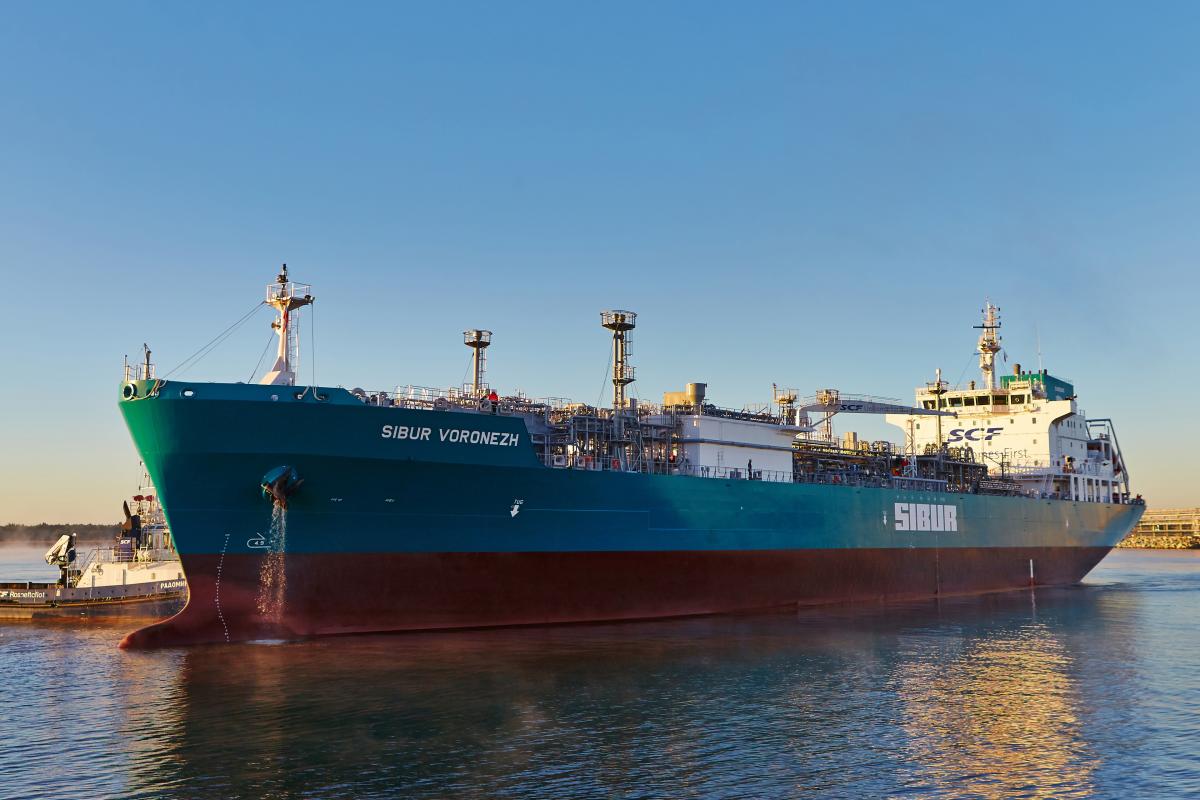
Under Sovcomflot’s Wing
Having enough experience on tankers and bulk carriers Yekaterina can adequately assess the working and living conditions on «Sibur Voronezh» – from salaries to cabin comfor:
- Salary on bulk carriers and gas carriers differs drastically, and there’s no sense to compare them. Also, I’m really glad, that we have signed a collective agreement with Seafarers’ Union of Russia. On our tanker, this agreement stays in public access and each crew member can have a look at it. The conditions on board depend mostly on the shipmaster and the cook when it comes to food. Here, on «Sibur Voronezh», we have excellent food, comfortable cabins. There are no problems with communication – there is always an opportunity to communicate with family and friends. In addition, relatives can visit us directly on board. If you want to keep yourself in shape you can go to the gym, but to be honest, I’m usually too tired for the gym. Job may take almost all of your time: watch can slowly turn into mooring and back and you cannot forget about your other duties. On larger vessels it can be easier to work, because voyages take longer time, especially oceanic ones, so you don’t have to work «non-stop». Our ship works only in Europe, so there can be three ports in one week.
Even when Yekaterina Balabukha became 4th Mate she considered it important to build a good relations with the crew. And she succeeded in it quite quickly, but still there was a catch to this:
– The crew has never been jealous of me. On the contrary: it was me whofelt it hard to remove my own inner barriers, because it turns out that I was in command of the seafarers, some being twice as old as me. In this case, as in other aspects of this work, to earn the crew’s respect you need to show that you're not a wuss and that you really know your business. A couple of times, though, I had to talk to the guys "like men" because otherwise they were not able to understand what I was saying. But in general, there are no problems with the crew. Sometimes it is more difficult to get a share of understanding from their wives and girlfriends. Lots of them think that I work in maritime industry only to find a husband. There always will be people like that and nothing can be done about it.
Professional View
Yekaterina Balabukha has been working at the sea for 7 years now. That is why she can be safe in saying that the process of learning does not stop on your graduation. On the contrary, sailors can get the most valuable knowledge during their first sails.
– The situation is related to the lack of practical knowledge. The Admiral Makarov State University of Maritime and Inland Shipping provides high quality of education, but some things can be learnt right on the vessel during the voyage. Unforyunately, this takes much time away from the officers. We wanted to learn in more detail about the specificity of working on different types of ships, about the types of cargo, security and other things before we went on the first voyage. With this type of knowledge it would be much easier to decide what type of vessel is more suitable for the beginning of your career. Of course, we were taught all this, but to the extent that seems to be insufficient, – Yekaterina says.
– So far, I plan to continue to work at the sea. Every person wants to occupy the highest position in the field of his or her activities, to climb the top. But as this is a big responsibility, I obviously need to get more experience for that. One thing I know for sure – I will never break up with the sea. I have a form of seasickness "in reverse" – I feel bad without the sea. And to all girls who decide to connect their lives with the merchant marine, I can say the following: be prepared for a grueling physical experience , long separation from families and friends. But if you feel that it is really your life’s work, nothing will hassle you.. You will not be able to give up the sea, – Yekaterina believes.
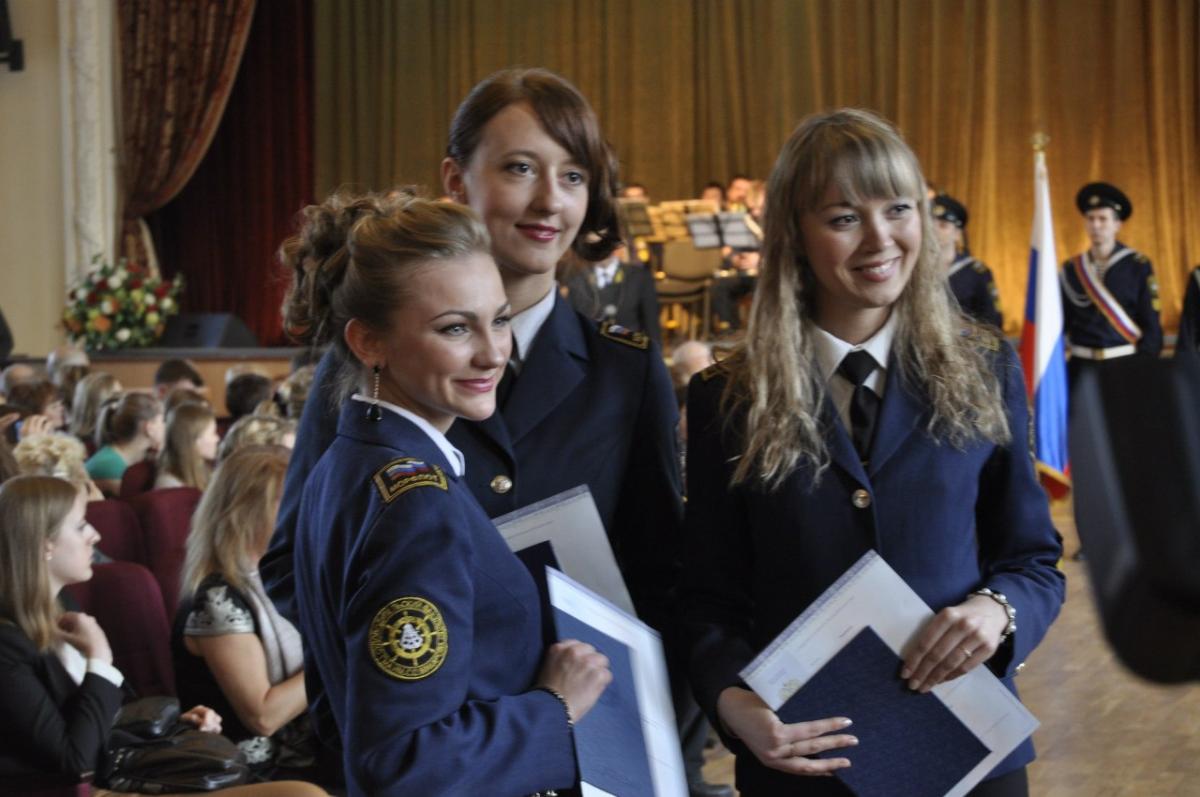
Up
